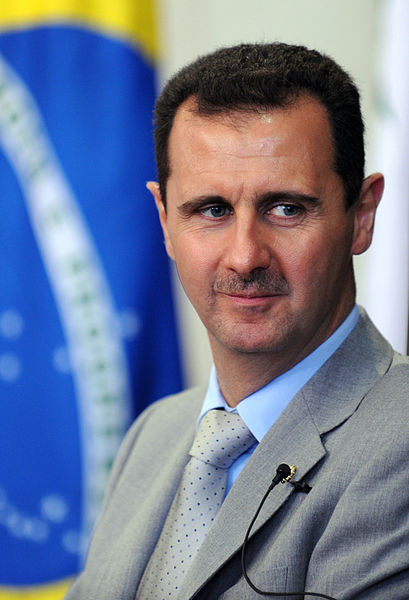The conflict in Syria has been going on for more than two years now and still the nations of the world have yet to come to any sort of decision regarding involvement in the civil war. Though almost all universally agree that President Bashar Assad should end his regime and try to work out some sort of compromise with the rebels for a new government, how to go about this is the main issue.
Russia and China are blocking attempts within the United Nations to take a more direct approach such as arming the rebels or using military intervention. Even if they were to relent, many countries are reluctant to put their own soldiers in harm’s way. Now, the face of the war may be changing as Israel has, for a second time this year, taken direct military action against the Syrian government.
Reports as of Friday, May 3 say that Israel launched a strike against Syria, though the exact target remains unknown. Rumors suggest that they blew up a convoy that was attempting to move chemical weapon delivery systems to Lebanon. The previous strike in January of this year was against another such delivery, this one carrying anti-aircraft missiles. As the attacks pile up, the possibility of the Syrian Civil War being decided by outside forces mounts. The danger of Syria’s chemical weapons stockpile is prompting more people to think of a military solution.
So why would Israel be so concerned about military equipment moving out of the country? The main problem comes in the form of terrorist groups such as the Hezbollah. If they were to get their hands on the means to launch chemical strikes against Israel, there is every possibility that they would use them. Israel has many neighbors that do not like them and there are several radical elements within those countries that care little for the lands that they set up in.
Even though it would most likely ensure a massive retaliation, the thought of causing so many Israeli deaths could prove too tempting. Given that President Assad has amiable relations with Hezbollah, he has no qualms about supplying them with weaponry, especially if they can do something to help him with his own struggle. The strike from Israel was intended to make sure that things have less probability of escalating to that level.
In addition to the strikes, Israel is taking other measures just in case the Syrian war spills across into their country. There have already been dozens of limited exchanges near the Israeli-Syrian border. To deal with this, Israel has decided to set up a large defensive line and begun manning outposts there.

But what of the other people who could do something to end this conflict quickly? Is the primary motivation behind countries such as the United States not becoming involved simply the field of international relations? This sort of problem has been around since the dawn of civilization, though before a decision could have meant the end of a country altogether should they choose the wrong side. Today, those consequences aren’t quite so harsh. Thus, the value of human lives is being measured against the problems that arise from interference, including the loss of lives on our own side. Is this hypocritical, to let innocent people die in the crossfire because we don’t want to hurt our relations with Russia and China? Or is there more at stake?
The most important deciding factor in the eventual outcome of whether the rest of the world takes action may be Syria’s large stockpile of chemical weapons. The fear is that Assad will either sell these weapons to others more willing to use them or that a strike in the country will end up hitting a chemical facility and causing a spill. Either way, the lives lost then become those other than Syrians and thus perceived as more valuable because they are not directly involved. Currently, the ideal solution seems to be to strike at the delivery systems, though only Israel has taken this step thus far and, even with the presence of all those chemicals, the likelihood of U.S. involvement still looks to be low.
And though governments will continue to avoid making a solid decision in the matter, those against Assad’s regime may find their delays to be problematic. One analysis says that Assad may be gaining the upper hand in the conflict or, at the very least, staving off his demise for some time to come. Without any outside interference, Syria’s president and the civil war may be around for another two years and claim tens-of-thousands more lives. At what point does preventing the deaths of innocents become out main priority?
Israeli-Syrian Border Defense photo courtesy of Israel Defense Forces via Wikicommons
President Bashar Assad photo courtesy of Fabio Rodrigues Pozzebom via Wikicommons



0 comments